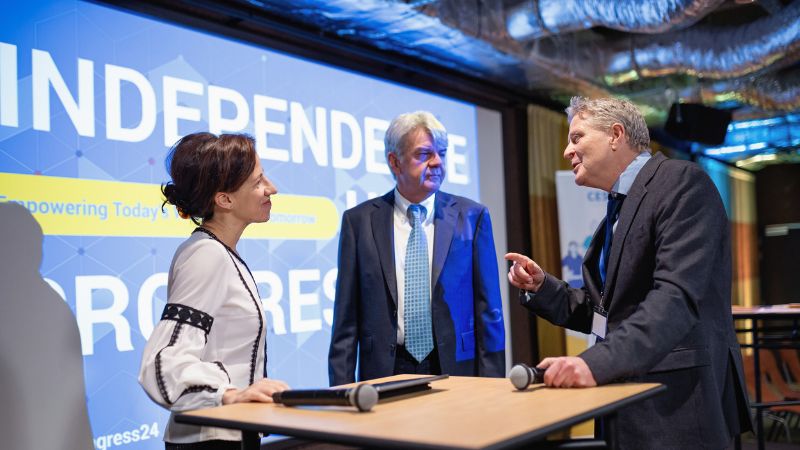CESI contribution to second-phase social partner consultation on quality traineeships now available




In a second phase of a consultation of European social partner organisations, CESI has called for a new binding measure of the EU to improve the quality of traineeships in Europe.
In the consultation statement, CESI broadly supports the European Commission’s consideration of an EU measure (1) to support the prevention, detection and combating of the problematic use of traineeships and to support trainees in accessing the rights to which they are entitled, (2) to improve the quality of traineeships by supporting fair working conditions, including remuneration and access to social protection, and an adequate learning and training component; and (3) to foster the inclusiveness of traineeships and equal access to traineeship opportunities in the EU.
CESI specifies in its contribution that:
- a possible list of elements pointing at the misuse of a traineeship should be non-exhaustive and binding provided that this does not compromise on aspects of legal certainty.
- the existing recommendation of a maximum duration of a traineeship of no more than 6 months should be made binding, with exceptions only allowed if specified objectives reasons exist.
- an initiative of the EU should require Member States to ensure that their responsible national authorities carry out dedicated checks and inspections to detect and enforce the compliance of traineeships with EU law, national law or collective agreements.
- supporting measures to ensure that trainees can gain effective access to existing labour rights to which they are entitled should imperatively include an explicit reference to the role of trade unions and trade unionism in this regard.
- with a view to the Fixed-Term Work and Part-Time Work Directives, an initiative of the EU should specify at least for trainees who are classified as workers that being a trainee does not constitute an objective ground justifying less favourable treatment by reference to the employment conditions of a comparable permanent or full time worker.
- concerning pay/remuneration, the policy objective of an EU measure should remain that curricular internships should always need to include an allowance to cover the costs of living (transport, accommodation, food). CESI considers this an important aspect to achieve non-discrimination: The presence or absence of a financial capacity of the family of a young person should not condition his/her prospect and opportunities to take on traineeships to optimise career starts in labour markets. CESI notes that for all other traineeships that are not required by educational degree curricula, the minimum wage or alternatively an applicable collective bargaining agreement in place should be taken as guideline or reference for pay/remuneration.
- a binding access to adequate social protection remains imperative for trainees. At least all persons in traineeships that are not required by educational degree curricula should be covered by statutory social protection. CESI considers that the inclusion of trainees in statutory social protection systems would not alter the financial equilibrium thereof. A requirement for unanimous voting in the Council should not preclude a legislative proposal of the European Commission for this aspect.
- a new initiative of the EU should turn the 2014 Quality Framework for Traineeships (QFT) principles on the conclusion of a written traineeship agreement, including information on educational objectives and working conditions, into a legal obligation applicable at least to trainees who are workers. CESI also considers that The EU initiative should strengthen the provision of information on mentoring, supervision and evaluation.
CESI Secretary General Klaus Heeger said: “As CESI, we consider that – wherever the Treaties provide for this – a binding EU measure is the appropriate way to improve the quality of traineeships in Europe. Where unanimity in the Council is required for the adoption of a binding measures, the European Commission not take this reason to not issue a proposal for a binding measure in the first place.”
CESI’s full second-phase consultation contribution is available here.

Image Gallery
CESI contribution to second-phase social partner consultation on quality traineeships now available
Related videos
Similar Posts


Urgent call by European civil society to the European leaders and the leadership of the EU
As a proud member of the European Movement International (EMI), CESI fully supports the urgent call to defend democracy, uphold fundamental rights and the rule of law, and strengthen the EU’s capacity to act in the face of geopolitical challenges.
Get in touch
with us
Confédération Européenne des Syndicats Indépendants (CESI)
Contact form
Stay up to date
Don’t miss a thing and subscribe to our newsletter
Subscribe now and receive newsletters and much more!



